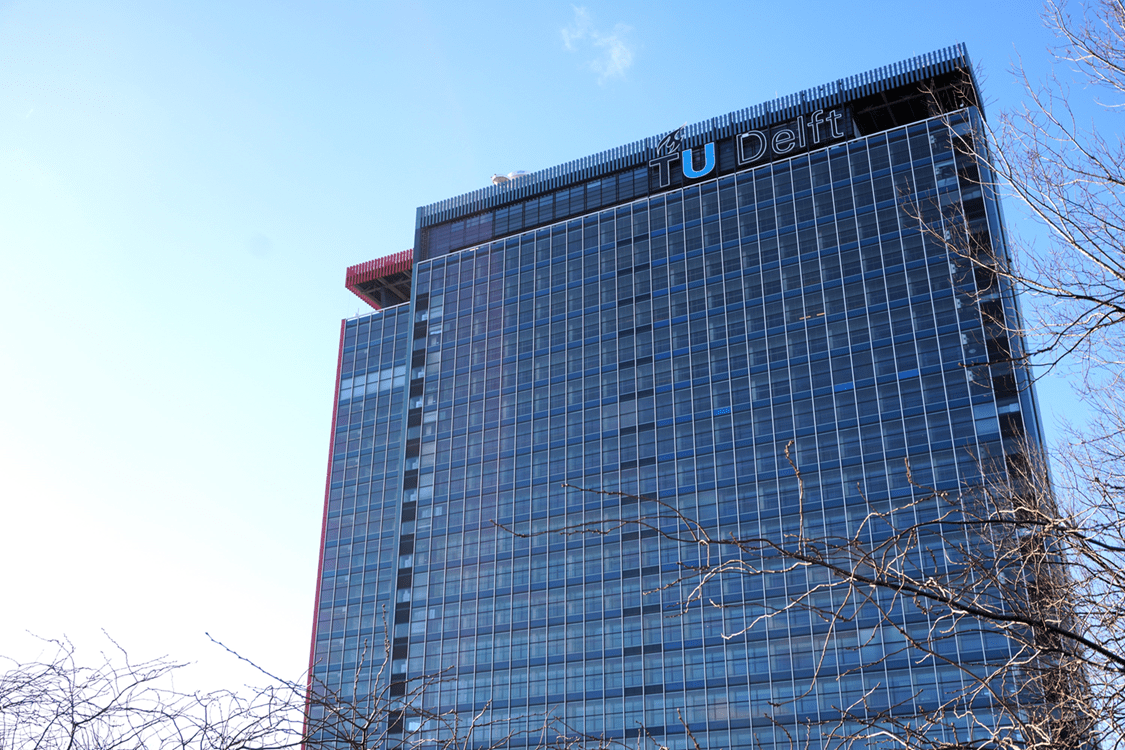The planned departure of the Executive Board is causing concern among various bodies about the stability of governance at TU Delft. Internal trade unions warn that the changes will come at a critical period of major challenges. The student and works council, on the contrary, face the changes with confidence.
(Photo: Marjolein van der Veldt)
The local trade unions are concerned about the impact of the departure of two current Executive Board members and changes to the management model that were announced. While they are happy about the promised role division in the Executive Board and the announced departure of Chair and Rector Tim van der Hagen and Marien van der Meer (Vice President Operations), the local trade unions question the stability within TU Delft.
“We are extremely concerned about management continuity,” said Fred Veer on behalf of the FNV, AOb and CNV trade unions. “The way that the Executive Board will operate strongly depends on the appointment of a new Vice-Rector.” This vacancy has been open since Rob Mudde’s departure on 1 October. Recruitment for a successor is well under way.
Veer describes the situation as a double-edged sword. While change is needed, this governance change comes at a time in which TU Delft is dealing with major challenges. “Case files such as TU Delft’s financial situation, the findings of the Labour Inspectorate about workload and the forthcoming recovery assessment are putting more pressure on TU Delft.
‘If the Executive Board had stepped down earlier, we would be in a stronger management position’
Veer said that an earlier departure of the Executive Board would give TU Delft more time to prepare for these challenges. “If the Executive Board had stepped down earlier, we would be in a stronger management position.”
Opportunities
National trade union CNV sees potential for improvement in the forthcoming departure of the Executive Board. Natasja Heuwer, the Manager for Universities at CNV, says in a press release that separating the positions of chair and rector is positive. ‘But we are not immediately celebrating: much will depend on the genuine will and ability to change of the future Board.’
CNV repeats its call on TU Delft to take clear action. The unions have again pushed the Executive Board to take three measures: a thorough baseline measurement to map the scale of the lack of social safety; a screening of everyone in supervisory positions at TU Delft to improve social safety and guarantee good leadership; and, an independent point of contact where staff members and students can report incidents without fear of repercussions.
‘The Minister played no part in the administrators’ departure’
In October, the union asked Minister Bruins of Education to intervene and pushed for the departure of the entire Board. That said, a Ministerial spokesperson said that this and other calls did not play a role in the pending departure of the Executive Board members. “The Minister played no part in the administrators’ departure. This is also not his remit.”
Criticism of the Supervisory Board
The Students and Staff for Safety pressure group – a group of people at TU Delft who have criticised the performance of the Executive Board and Supervisory Board regarding social safety for a while – questioned the way in which the Executive Board is arranging its departure. In a notice on Change.org, the group asks why the Board did not step down immediately and remained as temporary acting administrators. The issue was also raised whether the Supervisory Board, which supervises the Executive Board, will evaluate its own performance.
The pressure group also points to the coincidental concurrence of circumstances. The news about the departure of the two Executive Board members and the change in the management model was issued just before the Inspectorate of Education starts its reassessment. By then, TU Delft is to have achieved measurable improvements in the area of social safety.
Through a spokesperson, the Inspectorate of Education stated that the current developments will not impact the planning and execution of the reassessment, but that the issue will be taken into account. When asked, the spokesperson said that the reassessment was due to start in February, but an exact date has not yet been set. “It will be discussed with the Executive Board shortly.”
Addition to 13 January 2025: councils’ response
In a joint reaction, the Works Council and the Student Council state that they are happy that the Supervisory Board ‘agreed with [their] arguments’ for a new management model. They are then not expected to raise any objections.
In contrast to the unions, the representation bodies say that they trust that the continuity of governance will not be jeopardised. The Councils expect the impact on TU Delft to be limited thanks to the ‘full effort’ and enough potential interim Board members at TU Delft. That said, they did request the Supervisory Board to recruit new Board members quickly.
In the current model, education is allocated to the portfolio of one Executive Board member (previously Rob Mudde, temporarily Hans Hellendoorn). This is the Student Council’s regular interlocutor at consultation meetings. The Student Council hopes that this will remain, even if the education portfolio no longer falls under one member.
The Works Council and the Student Council state that ‘improving social safety […] continues to be a top priority’. They report that the representation bodies will ensure that social safety remains high on the agenda and that the measures needed will be carried out as quickly as possible. ‘The representation bodies will explicitly raise this issue with the new Board members.’
Do you have a question or comment about this article?
m.vanderveldt@tudelft.nl


Comments are closed.